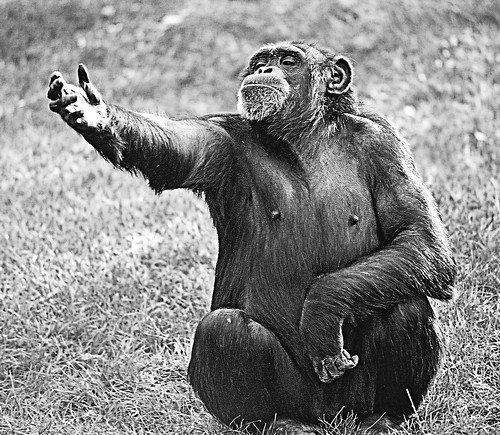 At the NYTimes.com blog “The Stone,” Frans de Waal, C. H. Candler Professor in Psychology and Director of the Living Links Center at the Yerkes National Primate Research Center at Emory University, writes on the roots of human morality, using a series of fascinating examples from research on primate behavior to illustrate man’s natural and unselfish attraction to “the good.” At the conclusion of the essay, de Waal writes:
At the NYTimes.com blog “The Stone,” Frans de Waal, C. H. Candler Professor in Psychology and Director of the Living Links Center at the Yerkes National Primate Research Center at Emory University, writes on the roots of human morality, using a series of fascinating examples from research on primate behavior to illustrate man’s natural and unselfish attraction to “the good.” At the conclusion of the essay, de Waal writes:
Over the past few years, we have gotten used to a strident atheism arguing that God is not great (Christopher Hitchens) or a delusion (Richard Dawkins). The new atheists call themselves “brights,” thus hinting that believers are not so bright. They urge trust in science, and want to root ethics in a naturalistic worldview.
While I do consider religious institutions and their representatives — popes, bishops, mega-preachers, ayatollahs, and rabbis — fair game for criticism, what good could come from insulting individuals who find value in religion? And more pertinently, what alternative does science have to offer? Science is not in the business of spelling out the meaning of life and even less in telling us how to live our lives. We, scientists, are good at finding out why things are the way they are, or how things work, and I do believe that biology can help us understand what kind of animals we are and why our morality looks the way it does. But to go from there to offering moral guidance seems a stretch.
Even the staunchest atheist growing up in Western society cannot avoid having absorbed the basic tenets of Christian morality. Our societies are steeped in it: everything we have accomplished over the centuries, even science, developed either hand in hand with or in opposition to religion, but never separately. It is impossible to know what morality would look like without religion. It would require a visit to a human culture that is not now and never was religious. That such cultures do not exist should give us pause.
Bosch struggled with the same issue — not with being an atheist, which was not an option — but science’s place in society. The little figures in his paintings with inverted funnels on their heads or the buildings in the form of flasks, distillation bottles, and furnaces reference chemical equipment. Alchemy was gaining ground yet mixed with the occult and full of charlatans and quacks, which Bosch depicted with great humor in front of gullible audiences. Alchemy turned into science when it liberated itself from these influences and developed self-correcting procedures to deal with flawed or fabricated data. But science’s contribution to a moral society, if any, remains a question mark.
Other primates have of course none of these problems, but even they strive for a certain kind of society. For example, female chimpanzees have been seen to drag reluctant males towards each other to make up after a fight, removing weapons from their hands, and high-ranking males regularly act as impartial arbiters to settle disputes in the community. I take these hints of community concern as yet another sign that the building blocks of morality are older than humanity, and that we do not need God to explain how we got where we are today. On the other hand, what would happen if we were able to excise religion from society? I doubt that science and the naturalistic worldview could fill the void and become an inspiration for the good. Any framework we develop to advocate a certain moral outlook is bound to produce its own list of principles, its own prophets, and attract its own devoted followers, so that it will soon look like any old religion.
Read the full piece here.












